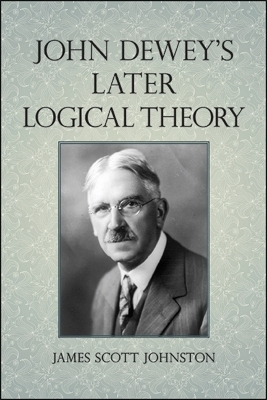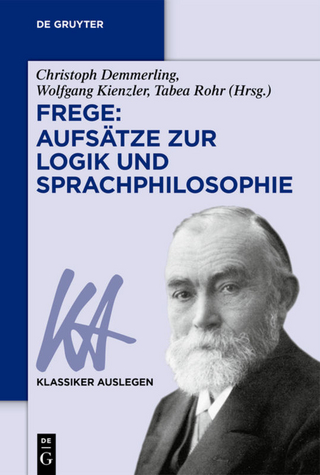
John Dewey's Later Logical Theory
Seiten
2020
State University of New York Press (Verlag)
978-1-4384-7941-5 (ISBN)
State University of New York Press (Verlag)
978-1-4384-7941-5 (ISBN)
A study of the development of Dewey's logic from 1916-1937 leading up to his final 1938 book on the subject.
By 1916, Dewey had written two volumes on logical theory. Yet, in light of what he would write in his 1938 Logic: The Theory of Inquiry, much remained to be done. Dewey did not yet have an adequate account of experience suitable to explain how our immediate experiencing becomes the material for logical sequences, series, and causal relations. Nor did he have a refined account of judging, propositions, and conceptions. Above all, his theory of continuity—central to all of his logical endeavors—was rudimentary. The years 1916–1937 saw Dewey remedy these deficiencies. We see in his published and unpublished articles, books, lecture notes and correspondence, the pursuit of a line of thinking that would lead to his magnum opus. John Dewey's Later Logical Theory follows Dewey through his path from Essays in Experimental Logic to the publication of Logic: The Theory of Inquiry, and complements James Scott Johnston's earlier volume, John Dewey's Earlier Logical Theory.
By 1916, Dewey had written two volumes on logical theory. Yet, in light of what he would write in his 1938 Logic: The Theory of Inquiry, much remained to be done. Dewey did not yet have an adequate account of experience suitable to explain how our immediate experiencing becomes the material for logical sequences, series, and causal relations. Nor did he have a refined account of judging, propositions, and conceptions. Above all, his theory of continuity—central to all of his logical endeavors—was rudimentary. The years 1916–1937 saw Dewey remedy these deficiencies. We see in his published and unpublished articles, books, lecture notes and correspondence, the pursuit of a line of thinking that would lead to his magnum opus. John Dewey's Later Logical Theory follows Dewey through his path from Essays in Experimental Logic to the publication of Logic: The Theory of Inquiry, and complements James Scott Johnston's earlier volume, John Dewey's Earlier Logical Theory.
James Scott Johnston is Jointly Appointed Associate Professor of Education and Philosophy at Memorial University of Newfoundland, Canada. He is the author of several books, including John Dewey's Earlier Logical Theory and Deweyan Inquiry: From Education Theory to Practice, both also published by SUNY Press.
List of Tables
Acknowledgments
Introduction
1. Dewey's Logical Education, 1915–1937: From Lectures on the Types of Logical Theory to Logic: The Theory of Inquiry
2. Dewey's Logical Development 1916–1924
3. Dewey's Logical Development 1925–1932
4. Dewey's Logical Development 1933–1937
Appendix 1
Notes
References
Index
| Erscheinungsdatum | 27.10.2021 |
|---|---|
| Reihe/Serie | SUNY series in American Philosophy and Cultural Thought |
| Zusatzinfo | Total Illustrations: 4 |
| Verlagsort | Albany, NY |
| Sprache | englisch |
| Maße | 152 x 229 mm |
| Gewicht | 227 g |
| Themenwelt | Geisteswissenschaften ► Philosophie ► Logik |
| Geisteswissenschaften ► Philosophie ► Philosophie der Neuzeit | |
| ISBN-10 | 1-4384-7941-7 / 1438479417 |
| ISBN-13 | 978-1-4384-7941-5 / 9781438479415 |
| Zustand | Neuware |
| Informationen gemäß Produktsicherheitsverordnung (GPSR) | |
| Haben Sie eine Frage zum Produkt? |
Mehr entdecken
aus dem Bereich
aus dem Bereich
ein Gegenentwurf zum kurzfristigen Denken : so werden wir zu den …
Buch | Hardcover (2023)
REDLINE (Verlag)
18,00 €


